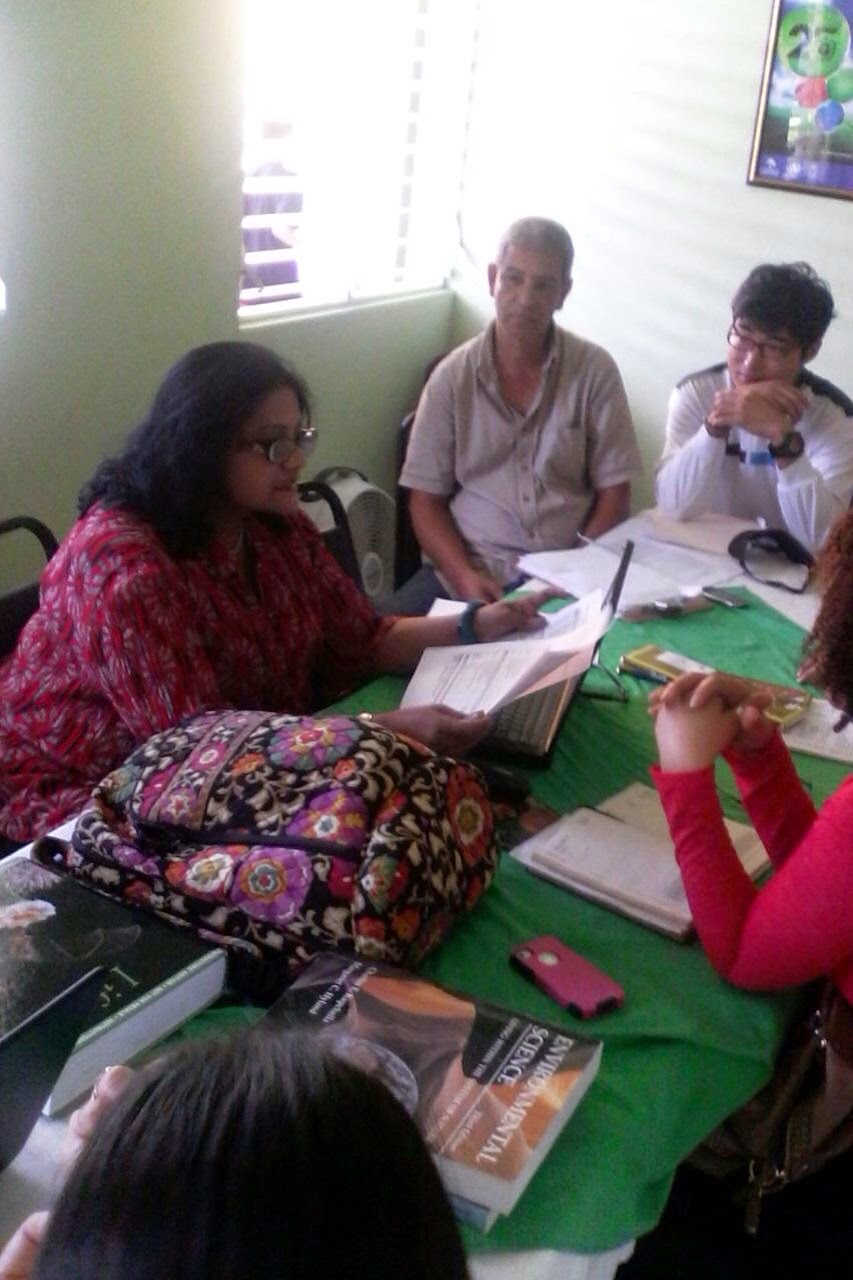Building Tomorrow's Leaders in Climate Change
In the Dominican Republic, helping communities adapt to the effects of
climate change also means building the capacity of the next generation of leaders to promote
and implement initiatives to reduce risk. Partners’ Farmer-to-Farmer program
not only assists producers in the Yaque del Norte region, but also collaborates
with local universities and environmental schools to achieve this goal. In
October, F2F volunteer, Usha Palaniswamy, the current Associate Dean and a professor
of math and science at Strayer Univesity in Florida, traveled to the DR to work
with the Jarabacoa National School of the Environment and Natural Resources
(Jarabacoa Environmental School). The objective of her assignment was to incorporate
a greater focus on climate change into the current curricula, as well as introduce
strategies for adaptation and mitigation.
 |
| Usha meets with school faculty to discuss incorporating climate change into the current curriculum |
The Jarabacoa Environmental School is located in the
municipality of Jarabacoa and offers a 2-year associate degree that builds students’
technical skills and prepares them to obtain jobs in the government and other
institutions. The school has on-site soil conservation and agroforestry projects,
tree nurseries, and other plots where students gain hands-on technical skills. Approximately
50 students per year graduate. Students are also able to live on the campus in
small 2-3 room dorms that have electricity and running water.
After receiving a tour of the campus and meeting with faculty to get
a sense of their roles, current extracurricular activities, and course
descriptions, Usha started her work on the curriculum. She began with developing a survey to assess the
student level of knowledge on climate change and the extent to
which they were environmentally friendly in their daily life practices. She
then used this information to develop a 15-week module. Usha
said, “These modules factor in major impacts of climate change in food and
nutrition security and a wide range of key adaptation and mitigation strategies
and practices that are closely related to the daily lives of students.” The modules
include an introductory course on climate change as well as techniques to
incorporate climate change components into other current courses and extracurricular activities. Usha presented
the curriculum to the faculty, and it
is set to be adopted in January 2015.
 |
| F2F volunteer, Usha Palaniswamy, at the Jarabacoa Environmental School |
Usha also met with the school administration to discuss the challenges of engaging students on the topic of climate change. One challenge is that while student transcripts reflect the technical skills students gain from their extra-curricular activities, knowledge gained on climate change is not currently viewed as a technical skill. As a result of these observations, the Jarabacoa Environmental School, F2F field staff, and Partners of the Americas are discussing how to address these challenges with two environmental education specialists from Wisconsin. In February, these two specialists are scheduled to travel to the DR to build off of Usha's curriculum and potentially create a certification for students who complete the climate change module at the Jarabacoa Environmental School.

.png)

Comments
Post a Comment